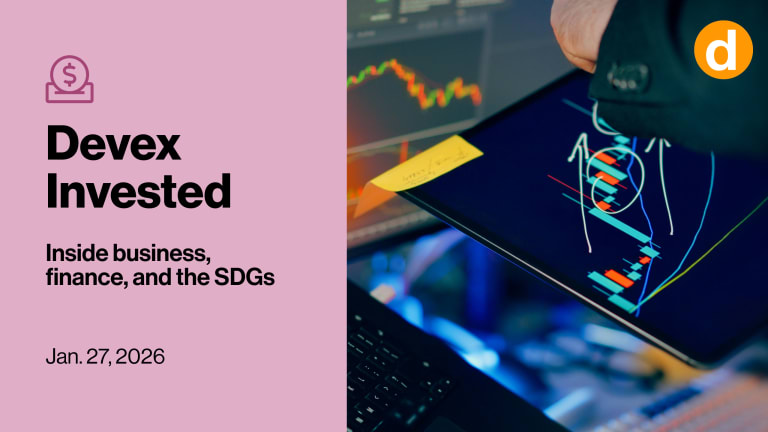
It’s been a while in the making, but this week Women’s World Banking finally closed its first private equity fund to invest in microfinance enterprises that support women.
The WWB Isis Fund, co-managed by WWB Asset Management and Triodos Investment Management, has raised $50.6 million which will largely be invested in financial institutions in the WWB network.
“It is truly a demand driven fund,”, Mary Ellen Iskenderian, president and CEO of WWB.
Many organizations within the WWB network were finding that in order to grow they needed to become fully-regulated for profit institutions, and that would require both investment capital and some capacity-building support.
WWB, which has long-term relationships with most of those institutions, wanted to continue to stay involved and help to ensure that those organizations could remain true to their social mission, especially their focus on women. But since they didn’t have their own capital to invest, they set about creating the Isis Fund.
One of the key motivating factors is that during the last several years, the number or share of women clients in microfinance organizations began to drop significantly, as did the representation of women in management and board positions, Iskenderian pointed out.
“I think we’ve all embraced this idea that when when women have discretion over their own financial resources they tend to invest in education, health, the improvement of their housing stock, nutrition — the kind of investments in their families and communities that have a much bigger multiplier effect — and they do this to a much greater extent than men do,” she explained. “Continuing to ensure that they have the ability to make investments in their businesses, to save in a safe place, to have insurance that can guard against catastrophic health emergency or a drought or a flood is absolutely essential to maintaining that financial independence.“
Getting investors on board
The Isis Fund is designed to invest in 10-12 microfinance institutions that have a focus on lending to women and/or include women in their management and operations. The fund will make investments in Latin America, South Asia, the Middle East and likely also in sub-Saharan Africa, with about 20 percent of the capital available to organizations outside of WWB network.
The first investor was a Dutch and Norwegian private pension fund, and having that first anchor investor from the private sector proved to be very helpful in attracting additional investors, Iskenderian said. Other investors include development finance institutions and high net worth individuals. The last investor to sign on is a donor who has worked with WWB in the past and chose to combine an investment in the fund with some grant funding to provide additional capacity-building support for the recipient businesses. This is indicative of a growing trend among donors who are looking to combine investment and grant money, said Iskenderian.
In order to assure fund investors of the financial and social returns, WWB worked with Triodos to incorporate the organization’s gender performance indicators into Triodos’ environmental, social and governance reporting metrics.
Some of the investors weren’t well versed in impact investing, but were eager to find ways to make their philanthropic dollars make the greatest impact, she noted. Perhaps due to easier regulations, it seemed, as evidenced by fund investors, Europeans are ahead of Americans on some of these types of investments, Iskenderian said.
One interesting lesson learned in the process of raising the fund is that not all potential investors are the right fit. A potential investor seemed quite interested but in the end couldn’t invest because its minimum deal size was about five times the total amount raised for the fund.
“I think there’s also something about right-sizing,” Iskenderian said. “The ability for a pension fund in particular to do a relatively small transaction can be painful.”
This story is part of a series on impact investing. For more, check out our Storify page on “Impact Investing 2.0: The evolving social finance landscape” and tweet @DevexImpact using #impinv.
Join Devex, the largest online community for international development, to network with peers, discover talent and forge new partnerships — it’s free. Then sign up for the Devex Impact newsletter to receive cutting-edge news and analysis every month on the intersection of business and development.








